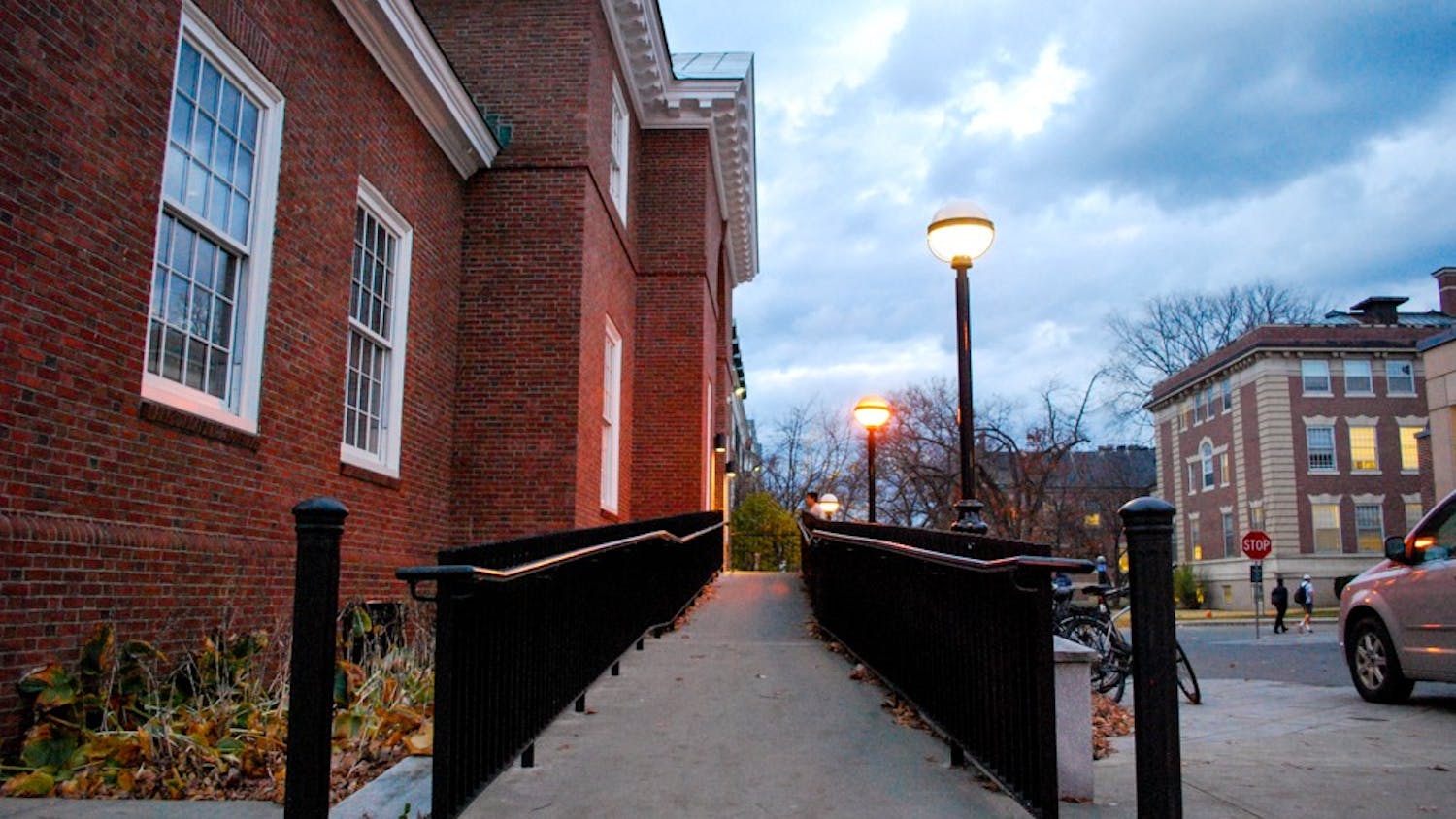Food is an inescapable part of our campus culture. We find it everywhere: in dinner picnics on the Green, as fuel for late-night work sessions in Novack and as an oddly popular topic of conversation. But not everyone’s relationship with food is straightforward. Many students with eating disorders struggle to navigate Dartmouth’s dining halls and food-dominated social scene, and their difficulties are only compounded by COVID-19 restrictions.
Dartmouth currently requires students to pay $2,220 for the Ivy Flex dining plan, which includes unlimited meal swipes and $300 in dining dollars. Dartmouth Dining has stated that the requirement is in place so students can access meals even if they become quarantined due to COVID-19.
Some students, however, like Ari Garnick ’24, have found the required unlimited meal plan to be dangerous for their relationship with food. Garnick said he often goes to the Class of ’53 Commons and feels pressured to get as much food as he can with his prepaid swipe, which he thinks enables overeating. Then, after sensing that he ate too much for lunch, he feels inclined to skip dinner to compensate, which he does not think is a healthy strategy.
“It's an environment that sets people up for failure,” Garnick said.
While Garnick has not been officially diagnosed with an eating disorder, his doctors have told him that he exhibits disordered eating habits. He thinks that the lack of choice in student meal plans can be dangerous for students who are at risk for eating disorders, whether they have an official diagnosis or not, and he often feels he does not have control over his own eating habits.
“The idea that [Ivy Flex] is the default, and not only is it the default but it’s what you have to use — I don’t think is in anyone’s best interest, even for people with a totally healthy, normal relationship with food. But for people where the relationship [with food] is more complicated, you’re introducing a whole bunch of potential triggers,” Garnick said.
Other students agree that the lack of autonomy over student meal plans has posed unique difficulties. A nutritionist at Dartmouth diagnosed Sophie Pelzer ’24, with avoidant/restrictive food intake disorder, which Pelzer described as an eating disorder characterized by “extremely picky eating.” She has not been to ’53 Commons since her third week on campus because she found the options limiting and the atmosphere overwhelming.
“I have found Snackpass and the options there are much better for me than the ones at the dining hall,” Pelzer said. “I feel guilty because it costs money to be on the meal plan, and I know my parents are upset with me because I’m not using the infinite swipes like I should.”
Pelzer and Garnick both feel that students should have more flexibility in designing their own meal plans.
“I would definitely like [a meal plan] where I wouldn’t have to spend $2,000 on a bunch of meals I won’t eat. If you could have an option to build your own meal plan, I think that would be a fun thing,” Pelzer said.
Caroline Laverick ’24 also feels that ’53 Commons can create a difficult environment for those with eating disorders. Laverick has struggled with anorexia for the last four years. Last January, she spent 13 weeks in residential treatment and remained in outpatient care through July. When she arrived at Dartmouth, eating in the dining halls was a significant adjustment.
“You really don't have the flexibility of looking around and serving yourself. It's just very overwhelming because you have to rely on the employees there to get food. So a lot of it is out of your hands,” Laverick explained. “I’ve been at both extremes — where I’ve had to make everything I’ve eaten, and when I’ve been in treatment [and] everything was made for me in the correct amounts, so I was able to take comfort in that. Then I went straight to college where I had to learn to trust flexibility in things.”
For Laverick, general student attitudes toward food are particularly harmful for those with eating disorders, and exposure to that can be impossible to avoid.
“People are entrenched in diet talk and the thin ideal and all these things that would have been really harmful,” Laverick said. “Eating disorders are not like any other type of addiction where you abstain from a behavior. If you're an alcoholic, you just don't put yourself in situations where there's alcohol, but if you're recovering from an addiction [to] losing weight or not eating, then you have to intentionally, many times a day, put yourself in the very situation that makes you afraid.”
So much of Dartmouth’s social scene revolves around socializing during meals, and this can be isolating for students who have more complicated histories with eating disorders.
“I just don't want to introduce myself to my friends like, ‘Hi, I'm Caroline and I struggle to eat,’” Laverick said. “Trying to also appear a certain way, in front of all my new friends, is another hard thing to do. It's hard to be entirely present during meals.”
Pelzer also felt that it was difficult to be fully entrenched in Dartmouth’s social scene.
“I have a lot of FOMO. I know my friends will eat dinner at [’53 Commons] at 7 [p.m.] pretty much every day, and I would rather not come, because what would I even do there if I'm not eating,” Pelzer said.
Ultimately, these students feel that one dining plan cannot accommodate every student’s individual needs.
“You need to give people options. Because at the end, the College can’t plan for every single person’s relationship with food, because everybody has a different relationship with food,” Garnick said.
Arielle Feuerstein ’24 is an English major from Bethesda, Maryland. She currently serves as the production executive editor, and in the past, she wrote and edited for Mirror. In addition to writing, Arielle enjoys crocheting, board games and walks around Occom Pond.




